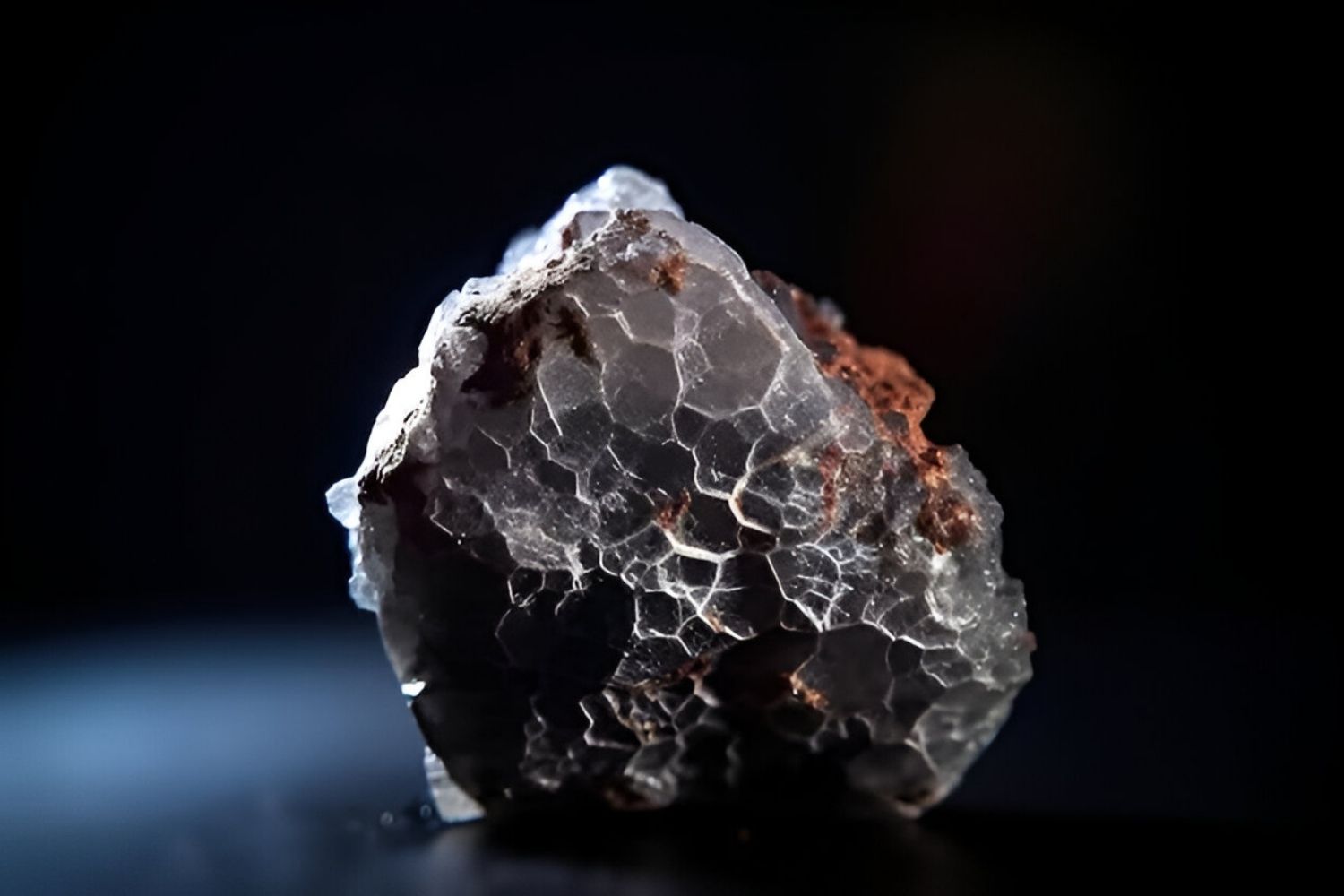
Fukuchilite is a rare mineral that has intrigued scientists and collectors alike. Found primarily in Japan, this mineral boasts a unique composition and striking appearance. Did you know that Fukuchilite is composed of copper, iron, and sulfur? Its metallic luster and brassy yellow color make it stand out among other minerals. Named after the Japanese mineralogist Nobuyo Fukuchi, it was first discovered in the 1960s. Fukuchilite often forms in hydrothermal veins, where hot, mineral-rich water flows through cracks in rocks. This mineral is not just a pretty face; it also has significant scientific value. Researchers study it to understand more about geological processes and the formation of ore deposits. Whether you're a geology enthusiast or just curious, Fukuchilite offers a fascinating glimpse into the Earth's hidden treasures.
Key Takeaways:
- Fukuchilite, a rare mineral named after Nobuyo Fukuchi, was discovered in Japan in 1961. Its unique composition and physical properties make it a prized find for collectors and researchers worldwide.
- With a chemical formula of Cu3FeS8, Fukuchilite's presence in hydrothermal veins indicates valuable copper deposits. It's not widely used in industry, but its rarity and unique properties make it a subject of interest in crystallography studies.
What is Fukuchilite?
Fukuchilite is a rare mineral that fascinates geologists and mineral enthusiasts alike. Named after the Japanese mineralogist Nobuyo Fukuchi, this mineral has unique properties and an interesting history. Let's dive into some intriguing facts about Fukuchilite.
Origin and Discovery
Understanding the origins and discovery of Fukuchilite can provide insight into its significance in the world of minerals.
- Fukuchilite was first discovered in 1961 in the Fukuoka Prefecture of Japan.
- The mineral is named after Nobuyo Fukuchi, a renowned Japanese mineralogist.
- It was identified in a copper mine, highlighting its association with copper deposits.
- Fukuchilite is often found in hydrothermal veins, which are cracks in rocks filled with mineral-rich water.
- The mineral is relatively rare, making it a prized find for collectors and researchers.
Chemical Composition
The chemical makeup of Fukuchilite is what sets it apart from other minerals.
- Fukuchilite's chemical formula is Cu3FeS8.
- It contains copper (Cu), iron (Fe), and sulfur (S) in its structure.
- The mineral's unique composition gives it distinct physical and chemical properties.
- Fukuchilite belongs to the sulfosalt mineral group, which includes minerals with complex sulfur compounds.
- The presence of both copper and iron makes Fukuchilite an interesting subject for metallurgical studies.
Physical Properties
Fukuchilite's physical characteristics are as fascinating as its chemical composition.
- The mineral typically forms in small, granular masses.
- Fukuchilite has a metallic luster, giving it a shiny, reflective appearance.
- Its color ranges from dark gray to black.
- The mineral has a Mohs hardness of 3.5 to 4, making it relatively soft.
- Fukuchilite has a specific gravity of approximately 4.6, indicating its density.
Geological Significance
Fukuchilite's presence in certain geological settings can reveal much about the Earth's processes.
- The mineral is often associated with other copper sulfides like chalcopyrite and bornite.
- Fukuchilite's formation in hydrothermal veins suggests it forms under high-temperature conditions.
- Its occurrence can indicate the presence of valuable copper deposits nearby.
- Studying Fukuchilite helps geologists understand the mineralization processes in hydrothermal systems.
- The mineral's rarity makes it a valuable indicator of specific geological environments.
Uses and Applications
While Fukuchilite is not widely used in industry, it has some interesting applications.
- The mineral is primarily of interest to mineral collectors due to its rarity and unique properties.
- Fukuchilite samples are often displayed in museums and educational institutions.
- Researchers study Fukuchilite to gain insights into the behavior of copper and iron in mineral deposits.
- The mineral's unique composition makes it a subject of interest in crystallography studies.
- Fukuchilite can also be used as a reference material in geochemical analyses.
Interesting Tidbits
Here are some additional fun facts about Fukuchilite that might surprise you.
- Fukuchilite is not radioactive, making it safe to handle and study.
- The mineral's name is sometimes misspelled as "Fukuchilite" instead of "Fukuchilite."
- Fukuchilite has been found in other locations outside Japan, including Canada and the United States.
- The mineral's discovery in different parts of the world suggests it forms under similar geological conditions globally.
- Fukuchilite's unique properties continue to intrigue scientists, leading to ongoing research and discoveries.
The Fascinating World of Fukuchilite
Fukuchilite, a rare copper-iron sulfide mineral, holds a unique place in the mineral kingdom. Discovered in Japan, it’s known for its metallic luster and deep black color. This mineral forms in hydrothermal veins, often found alongside other sulfides like chalcopyrite and pyrite. Its rarity makes it a prized specimen for collectors and geologists alike.
Understanding fukuchilite’s properties helps scientists learn more about geological processes and the environments where such minerals form. Its unique composition and formation conditions provide insights into the Earth's crust and the dynamic processes shaping it.
For collectors, fukuchilite represents a rare gem, adding value and intrigue to any collection. Its discovery and study continue to contribute to the broader knowledge of mineralogy and geology, making it a fascinating subject for both experts and enthusiasts.
Frequently Asked Questions
Was this page helpful?
Our commitment to delivering trustworthy and engaging content is at the heart of what we do. Each fact on our site is contributed by real users like you, bringing a wealth of diverse insights and information. To ensure the highest standards of accuracy and reliability, our dedicated editors meticulously review each submission. This process guarantees that the facts we share are not only fascinating but also credible. Trust in our commitment to quality and authenticity as you explore and learn with us.
